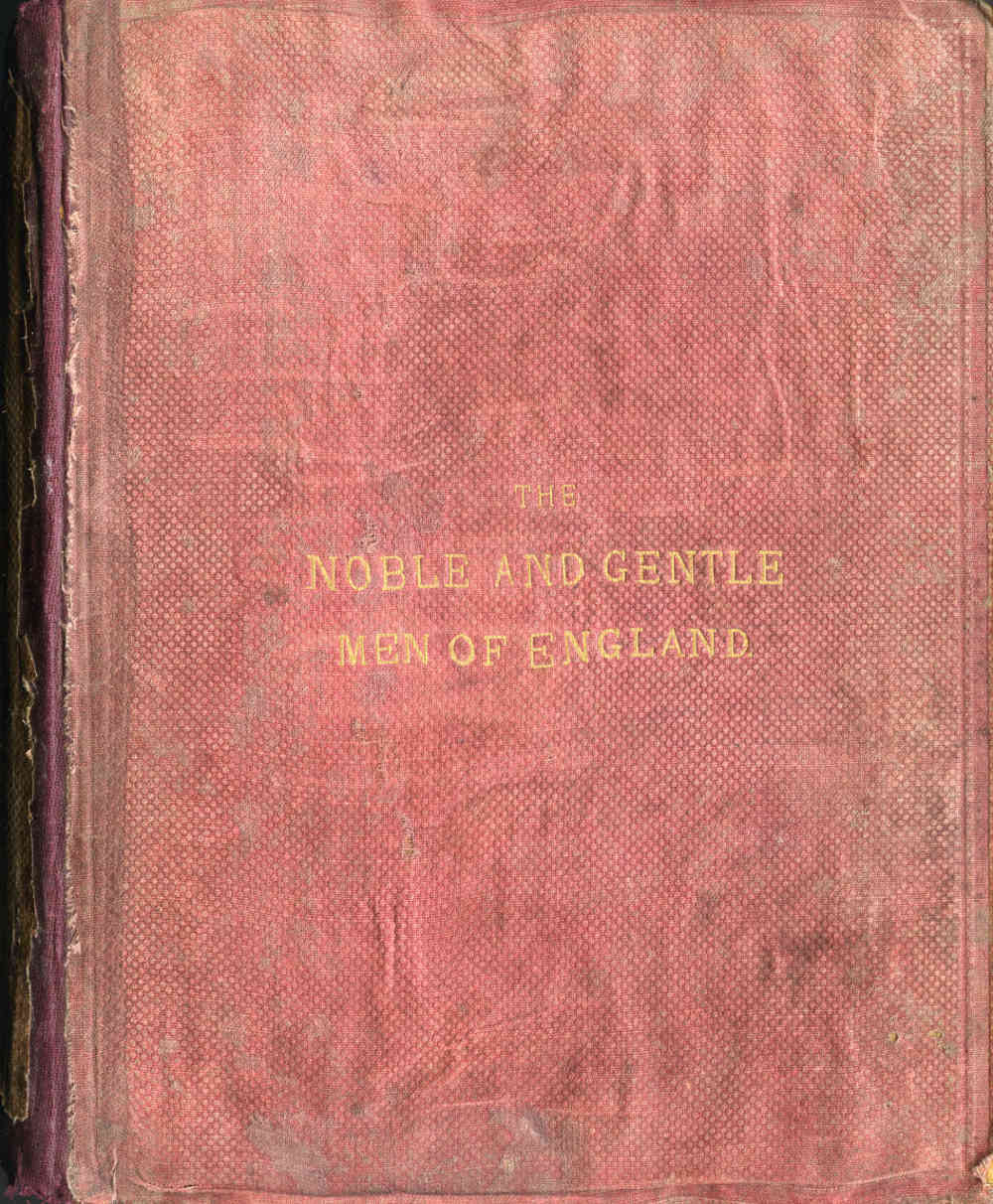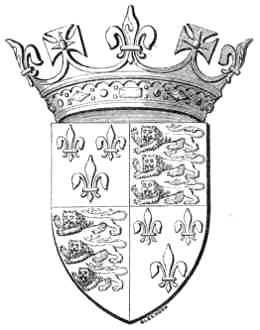
NOBLE AND GENTLE
MEN OF ENGLAND.
NOBLE AND GENTLE
MEN OF ENGLAND;
OR, NOTES TOUCHINGTHE ARMS AND DESCENTS
OF THEANCIENT KNIGHTLY AND GENTLE HOUSES OF ENGLAND,
ARRANGED IN THEIR RESPECTIVE COUNTIES.ATTEMPTED BY
EVELYN PHILIP SHIRLEY, ESQ. M.A. F.S.A.
LATE ONE OF THE KNIGHTS OF THE SHIRE FOR THE COUNTY OF WARWICK.
JOHN BOWER NICHOLS AND SONS.
Third Edition, Corrected 1866.
PREFACE.
"That noble families are continued in a long succession of wealth,honour, and reputation, is justly esteemed as one of the mostvaluable of worldly blessings, as being the certain tokens of GodAlmighty's providential favour, and the prudent conduct of suchancestors,"—Nath. Johnston's Account of the Family of Bruce Earlof Aylesbury, 1691, Harl. MS, 3879.
THE following imperfect attempt to bring together a few notesrelating to the ancient aristocracy of England, is confined in thefirst place to the families now existing, and regularlyestablished either as knightly or gentle houses before thecommencement of the sixteenth century; secondly, no notice is takenof those families who may have assumed the name and arms of theirancestors in the female line: for the truth is, as it has beenwell observed,* "that, unless we take the male line as the generalstandard of genealogical rank, we shall find ourselves in a hopelessstate of confusion;" thirdly, illegitimate descent is of courseexcluded; and, fourthly, where families have sold their originalestates, they will be noticed in those counties where they are atpresent seated; if however they still possess the ancient estate oftheir family, though they may reside in another county, they willbe mentioned for the most part under that county from whence theyoriginally sprung.
In those cases where the whole landed estate of the family has beendissipated, although the male line still remains, all notice isomitted, such families having no longer any claim to be classed inany county. For, "ancient dignity was territorial rather thanpersonal, the whole system was rooted in the land, and, even in thepresent day, though the land may have changed hands often, it hascarried along with it some of that sentiment of regard attached tothe lordship of it, as surely as its earth has the fresh smell whichit gives when upturned by the husbandman."**
This list also, it must be remembered, does not profess to give anaccount of all those families whose descent may possibly be traced